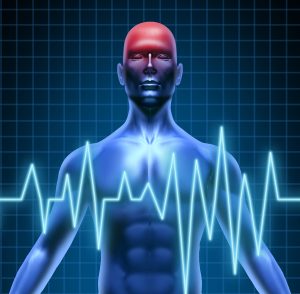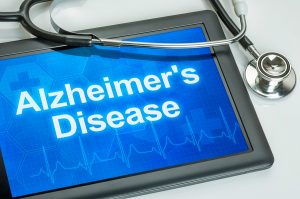Hearing loss can be a frustrating situation for your senior because it can make it difficult for her to communicate with and connect with the people around her. She can also lose some of the hobbies and other parts of her life that she really loves.
Long Term Exposure to Loud Noise
One of the most common reasons that people lose their hearing is from long term exposure to loud noises. This type of hearing loss might happen gradually, over years of exposure to loud noises. Ear protection can help to reduce hearing loss, but your senior might have already experienced the noise that contributed to the damage in her inner ear.
Damaged Eardrums
Sudden hearing loss is often the result of a damaged ear drum. This can happen due to an injury, such as a blow to the head, or because of something that was pushed into the ear canal. This is a big reason that cotton swabs are not recommended for ear cleaning. But an infection can also cause a ruptured ear drum, so it’s important to get to your senior’s doctor if she suddenly loses her hearing.
Earwax Buildup
Over time, ear wax can start to build up in your elderly family member’s ear canal. When that happens, it’s more difficult for sound waves to get where they can be interpreted. If your senior’s doctor is able to remove the ear wax, she can likely experience a full recovery of her hearing.
Other Health Conditions
Those other health issues that your senior battles every day, especially diabetes or high blood pressure, don’t just impact those systems of her body. They can also contribute to hearing loss. Likewise, a stroke can affect the hearing in one or both of your senior’s ears. There may be other health issues that affect her hearing, too.
Ototoxic Medications
Ototoxic medications are medications that are known to be damaging to hearing. Many of these medications are prescription medications, and the ototoxicity may be listed as a potential side effect. But what most people don’t realize is that there are a lot of ototoxic medications that are extremely common over the counter medications. These are things like aspirin and ibuprofen. If your senior already has hearing loss, talk to her doctor about what medications she may want to avoid or take sparingly.
As your senior’s hearing changes, it might be beneficial for her to have some extra assistance. Elderly care providers can make sure that she’s safe and that her needs are met, especially if you’re not able to be there with her.
If you or an aging loved one is considering hiring elderly care in Phoenix, AZ, please call the caring staff at Golden Heart Senior Care of Scottsdale at (480) 284-7360. We are here to help!
 To help people remember and recognize the signs of stroke, the American Heart Association uses the acronym F.A.S.T. The letters mean:
To help people remember and recognize the signs of stroke, the American Heart Association uses the acronym F.A.S.T. The letters mean: In addition to the behavior changes that your elderly loved one could experience with Alzheimer’s disease, there are physical symptoms that they may develop early on, too. Some of these symptoms might include the following:
In addition to the behavior changes that your elderly loved one could experience with Alzheimer’s disease, there are physical symptoms that they may develop early on, too. Some of these symptoms might include the following: